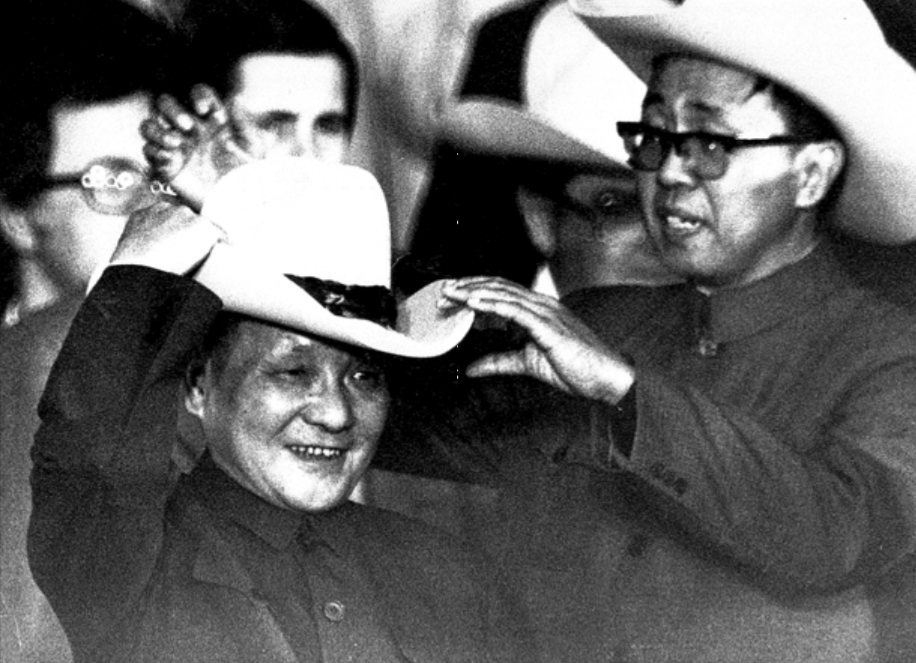A Texas perspective on US-China relations: keep it going
By MAY ZHOU in Houston | China Daily Global | Updated: 2019-02-02 02:17

In its own way, Texas has played an important role shaping US-China relations.
After all, Chinese leader Deng Xiaoping's putting on the cowboy hat at a Texas rodeo show has become the quintessential image symbolizing the beginning of this remarkable bilateral relations as well as China's opening to the West.
It's no surprise that when Asia Society Texas Center invited three prominent Texans with years of involvement with China to discuss 40 years of US-China relations from a Texas perspective, Deng's visit to Houston was the first thing reviewed and mentioned.
Charles Foster, chairman of US China Partnerships and former chairman of ASTC for years, was 40 years ago at the Simonton rodeo bearing witness to that historical moment.
David Firestein, founding executive director of The University of Texas at Austin's China Public Policy Center, said that Deng's visit to Houston set the tone for the US-China relations for decades to come.
"It gives us hope that states and cities rather than the federal government can drive forward the relationship," he said.
Along with Neil Bush, son of the late former president George H. W. Bush and Barbara Bush, and Greater Houston Partnership CEO and President Bob Harvey, the small panel agreed that much has been achieved in the 40 years of relations, and more will be gained by continuing it.
Regarding the ongoing frictions in the US-China relations, Foster said that "the problem is precisely [because of] the success of China. China has come back and tried to restore itself to what it once was. It has been so successful that it is automatically viewed as threat by policy makers of the administration."
Bush agreed that China's rise is not a threat to the US, rather it's an opportunity for two countries to work together on human challenges and global challenges.
"China system of governance is right for China, and our system of governance is right for us, we shouldn't expect China to embrace ours nor should China expect us to embrace theirs," Bush said.
Firestein considers many issues in the US-China relations today are actually symptoms of a deeper civilizational and structural difference between the two nations that goes beyond the two political systems.
"The United State is a civilization rooted in Judeo-Christian tradition while China comes from humanistic tradition. Neither is better than the other, but that makes for fundamentally different prisms of seeing the world.
"The United States tend to see the world through prism of good and evil, but China tends to see the world through prism of yin and yang - two forces in the world, neither is better or worse, you need both in balance," he said.
Such fundamental differences complicate the relationship and create structural and civilizational undercurrents that are not often seen and talked about, Firestein said.
Foster said that in his years of going to China, he understands that Chinese people are just like Americans. "They have same aspirations for better life, family, sending their kids to colleges. It would a huge mistake if we enter into another unnecessary cold war," he said.
Despite uncertainty created by the current administration, Firestein is optimistic about the long term future of the two nations' economic and trade relationship "because few economies are the size and scale of US and Chinese economy. When you have 650 some billion in trade, it is difficulty to decouple those relationship, and it's not in either's interest to decouple the economies. Over time, we will get it right."
Consul General of China in Houston Li Qiangmin, speaking to the audience after the discussion, emphasized that the bilateral relations are mutually beneficial. With so much cooperation between the two nations, "disengagement is impossible".
Alluding to the trade talks in Washington that just concluded and an upcoming meeting between President Donald Trump and President Xi Jinping, Li said "I'm hopeful our two countries will reach agreement to find solution."
Contact the writer at mayzhou@chinadailyusa.com
























